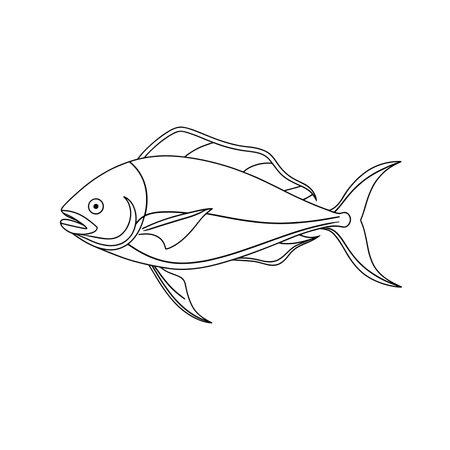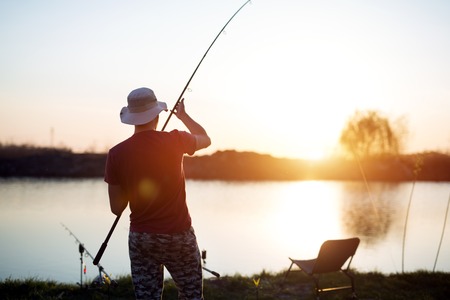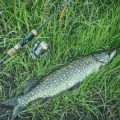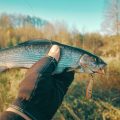Understanding Coarse Fishing in the UK
If you’re new to the world of British angling, understanding coarse fishing is the perfect starting point. In the UK, “coarse fishing” refers to the pursuit of freshwater fish species other than salmon and trout. It’s a pastime deeply woven into British culture, enjoyed by people of all ages on rivers, lakes, canals, and ponds across the country.
What Is Coarse Fishing?
Coarse fishing is distinct from game fishing (which targets species like trout and salmon). Instead, anglers focus on catching a variety of non-salmonid fish—commonly known as “coarse fish.” This makes it an accessible and relaxed way to enjoy angling, with less emphasis on size or species prestige and more on the enjoyment of the sport itself.
Key Fish Species
Some of the most popular coarse fish in Britain include:
- Carp – Highly prized for their size and strength.
- Bream – Known for their shoaling habits and distinctive shape.
- Tench – A shy but rewarding catch, especially in summer months.
- Roach & Rudd – Common silverfish that offer great sport for beginners.
- Pike & Perch – Predatory species that add excitement to any session.
The Cultural Significance
Coarse fishing holds a special place in British leisure life. From quiet mornings beside misty canals to friendly club matches at local lakes, it’s as much about community as it is about catching fish. Many people join local clubs not just for access to waters, but also to become part of a supportive group where tips and stories are freely shared.
How Coarse Fishing Differs from Other Types
Unlike fly fishing (primarily for trout and salmon), coarse anglers use bait such as maggots, sweetcorn, or boilies, often with float or feeder setups. The approach tends to be more relaxed and inclusive, with less need for specialist gear or casting techniques.
This foundation is essential before joining a UK coarse fishing club—it helps you understand what draws so many anglers to this tradition and prepares you for your own rewarding experiences on British waters.
2. Finding and Joining a Local Coarse Fishing Club
Getting started in UK coarse fishing is much easier when you join a local fishing club. Not only does this give you access to waters, but also to a wealth of knowledge from experienced anglers. Here’s how you can find and join a club, what to consider before signing up, and what to expect from the membership process and club rules.
How to Search for Clubs in Your Area
Begin by searching online using terms like “coarse fishing clubs near me” or check the Angling Trust website which lists affiliated clubs across the UK. Local tackle shops are also goldmines of information—they often display noticeboards with club details or know of smaller, less-advertised groups. Don’t overlook community centres and village noticeboards either, as many rural clubs still use traditional methods to attract new members.
What to Look For in a Club
When narrowing down your options, keep these factors in mind:
| Consideration | Why It Matters |
|---|---|
| Club Waters & Locations | Ensure venues are accessible and suit your transport arrangements. |
| Membership Fees | Compare costs—some clubs offer concessionary rates for juniors, seniors, or disabled anglers. |
| Facilities Available | Look for parking, toilets, disabled access, and on-site bailiffs for safety. |
| Club Ethos & Community | A friendly club with events and matches helps beginners integrate quickly. |
| Coaching & Support | If you’re new, check if the club offers coaching sessions or buddy systems. |
The Membership Process: What to Expect
The process is typically straightforward. Most clubs require you to fill out an application form (online or paper), submit passport-sized photos for your membership card, and pay an annual fee. Some may ask for references or a brief interview, especially if there’s high demand for places. Once approved, you’ll receive a membership card and rulebook—some clubs send these by post, while others distribute them at their meetings or through local tackle shops.
Typical Steps in Joining a Club
- Find your preferred club(s) and contact them via their website or social media.
- Request and complete the application form.
- Pay the membership fee (by bank transfer, cash at tackle shop, or PayPal).
- Await approval and receive your membership pack.
- Attend an induction meeting if required—great for meeting fellow members!
An Overview of Typical Club Rules
UK coarse fishing clubs have clear rules designed to protect fish stocks and ensure fair play. While every club is slightly different, most share some common regulations:
- No night fishing unless specified in your permit.
- Barbless hooks only on some waters to protect fish welfare.
- No keepnets except during matches or where expressly permitted.
- Bait restrictions: Some venues limit groundbait or boilies to prevent overfeeding.
- Catch-and-release policy: Most coarse fisheries are strictly no-kill; all fish must be returned carefully.
- Tidy up: All litter must be taken home—leave no trace!
- Respect closed seasons: Certain waters close during spawning periods; always check dates in your rulebook.
- No radios or excessive noise: Angling is about peace—keep disturbances minimal.
Pro Tip: Always carry your Environment Agency rod licence as well as your club card when fishing UK waters. Bailiffs can check at any time!

3. What to Expect at Your First Club Outing
Stepping into your first UK coarse fishing club outing can be both exciting and a bit nerve-wracking, especially if you’re new to the angling scene. Here’s a walkthrough of what a typical day might look like, along with some essential British fishing etiquette and tips for making the most out of your initial experience.
Arrival and Getting Settled
Most club outings start early in the morning. It’s best to arrive at least 30 minutes before the scheduled start time. Upon arrival, you’ll likely see members gathering in the car park or by the clubhouse, unloading their tackle and greeting each other. Don’t be shy—British anglers are generally friendly and will appreciate a polite “Good morning.” Find the club organiser or match secretary, introduce yourself, and check in. They’ll let you know about any specific rules for the day, peg draws (which determine your fishing spot), and timings.
Understanding British Fishing Etiquette
Respect is central to British coarse fishing culture. Always set up quietly at your designated peg and avoid encroaching on others’ space. Keep noise to a minimum, particularly during early hours or when fish are feeding. If you need advice or want to chat, wait for natural breaks rather than interrupting someone who’s actively fishing. Remember to keep your area tidy—take all rubbish home and use provided bins if available.
Common Club Activities
A typical club day may include friendly matches, social fishing, or even instructional sessions for beginners. During matches, there’s usually a set start and finish time (marked by whistles or calls). Everyone fishes simultaneously, aiming to catch as many fish as possible within the time limit. Afterward, fish are weighed and recorded before being returned safely to the water—a point of pride among UK anglers who champion fish welfare.
Meeting Other Anglers
One of the best parts of joining a club is meeting fellow enthusiasts. Most members enjoy sharing tips about local waters, bait choices, or stories from past trips over a cuppa (cup of tea) during breaks. Don’t hesitate to ask questions; seasoned anglers often enjoy helping newcomers settle in. By showing genuine interest and respect, you’ll quickly become part of the community.
In summary, your first club outing is all about observing local customs, embracing the camaraderie of British angling culture, and getting comfortable with the routines of organised coarse fishing. With an open mind and courteous approach, you’ll find these experiences both welcoming and rewarding.
4. Essential Gear and What to Bring
Getting started in a UK coarse fishing club is much easier when you know exactly what to bring. Here’s a detailed checklist, featuring the must-have kit, clothing for British weather, the right bait, and some helpful extras that experienced club members often recommend.
Basic Rods & Tackle
| Item | Purpose | Beginner Tips |
|---|---|---|
| Float Rod (10-12ft) | General all-round rod for lakes & rivers | Look for a lightweight model for easy handling |
| Reel (with 4-6lb line) | Suits most coarse species in the UK | A fixed spool reel is easiest for beginners |
| Landing Net | For safely landing your catch | Telescopic handle is ideal for versatility |
| Tackle Box | Keeps gear organised and protected | Choose one with compartments for small items |
| Hooks (sizes 16–12) | Covers most common UK coarse fish | Barbless hooks are club-friendly and easy to remove |
| Floats & Shot Weights | Essential for float fishing techniques | A small selection will cover different conditions |
| Bait Boxes or Bags | Storing live or prepared bait securely | Tight-fitting lids keep maggots and groundbait fresh |
| Disgorger & Forceps | Removing hooks safely from fish mouths | A must-have for beginner safety and fish welfare |
| Bait Riddle (optional) | Sifting groundbait for consistency | Recommended if you’re preparing your own mixes |
| Keepnet (if allowed by the club) | Holding fish safely before release/returning them to water together at session end | Always check club rules on keepnets first! |
Clothing: Prepared for British Weather!
| Clothing Item | Description/Why You Need It |
|---|---|
| Waterproof Jacket & Trousers | The UK weather is famously unpredictable – waterproofs are essential year-round. |
| Warm Layers (fleece, thermal base layers) | Mornings can be chilly even in summer; layer up and remove as needed. |
| Sensible Footwear (wellies or walking boots) | Muddy banks and wet grass are common – dry feet make a huge difference. |
| Cap or Wide-brimmed Hat | Keeps sun or drizzle off your face, depending on the day! |
| Sunscreen & Insect Repellent | Bites and burns happen even on cloudy days – always pack these small items. |
Bait: Tried-and-Tested Favourites in the UK
- Maggots – A staple choice, sold at all tackle shops; great for roach, perch, and bream.
- Sweetcorn – Cheap, effective, especially good for tench and carp.
- Luncheon Meat – Cut into cubes, especially attractive to barbel and carp.
- Bread Flake or Punch – Classic choice for chub and roach.
- Pellets & Groundbait – Used to attract fish to your swim; check club rules first.
Optional Extras Recommended by Seasoned Anglers
- Brolly or Shelter – For longer sessions in unpredictable weather.
- Bite Alarms (for specimen hunting) – Useful but not essential when starting out.
- Pole Roller/Rest – Helpful if you try pole fishing later on.
- Kneeling Mat – Protects both knees and fish during unhooking.
Packing Tips from Club Members
- A small rucksack makes carrying everything easier around large venues.
- A flask of tea or coffee is a British tradition on the bank!
- If you’re unsure about bait or rigs, ask local anglers at the club—most are happy to help newcomers get set up correctly.
The Key Takeaway:
You don’t need to buy everything at once! Start with the basics above, adapt as you learn from your club, and add new gear as you gain confidence. The right preparation helps ensure every session is comfortable—and maximises your chances of catching that first memorable fish!
5. UK Angling Laws and Club Rules
If you’re starting your coarse fishing journey in the UK, understanding the legal and club-specific regulations is absolutely vital. Not only does this ensure you fish responsibly, but it also helps preserve fish stocks and keeps the sport enjoyable for everyone.
Rod Licences: Your Legal Requirement
Before you cast a line in any freshwater venue across England and Wales, you must have a valid Environment Agency rod licence if you’re aged 13 or older. This applies whether you’re fishing rivers, lakes, canals, or commercial fisheries. Licences can be purchased online or at most Post Offices. Fishing without one can lead to hefty fines – so don’t risk it!
Close Seasons: Protecting Wildlife
The close season is a period when fishing for coarse fish is prohibited on certain waters, mainly rivers, from 15th March to 15th June each year. This break protects spawning fish and allows habitats to recover. Some stillwaters and canals are exempt, but always check with your club or the venue before planning a session during these months.
Catch Limits: Take Only Memories
Many clubs operate strict catch limits or insist on catch-and-release only policies. This means you may be restricted on the number or size of fish you can take home—if any at all. These rules are designed to maintain healthy fish populations and ensure future anglers enjoy the same opportunities.
National Regulations vs Club Rules
While national laws set the baseline, every angling club will have its own additional guidelines tailored to their waters. These might include specific bait bans (like no nuts or boilies), barbless hook policies, minimum landing net sizes, or even designated fishing spots. It’s crucial to read your club handbook thoroughly and ask members or bailiffs if unsure.
The Importance of Following Guidelines
Adhering to both national regulations and club-specific rules isn’t just about avoiding trouble—it’s about respecting fellow anglers, protecting wildlife, and ensuring the long-term health of our fisheries. When everyone plays by the rules, UK coarse fishing remains a fair, fun, and sustainable pastime for all.
6. Tips for Beginners: Making the Most of Club Membership
Practical Advice for Improving Your Fishing Skills
Joining a UK coarse fishing club is a fantastic way to accelerate your learning curve. Take advantage of club coaching sessions or informal advice from experienced members. Don’t be shy—most anglers are happy to share tips on bait selection, casting techniques, and watercraft (the art of reading water to find fish). Practice regularly at different venues; each water presents unique challenges that will broaden your skills. Record your catches and note what worked—this logbook approach helps you spot patterns over time.
Engaging with the Community
Being part of a club isn’t just about fishing—it’s about camaraderie and shared passion. Introduce yourself at meetings or on club social media pages. Volunteer for working parties or help maintain club waters, which is not only rewarding but also a great way to meet fellow anglers. Respect club rules and local customs; this shows you’re serious about contributing positively to the community. Remember, building relationships can lead to invitations to exclusive matches or private waters.
Participating in Club Events
Most UK coarse fishing clubs run regular matches, socials, and junior days. Even if you don’t feel ready to compete, attending these events is invaluable. You’ll pick up new tactics by watching others and often get feedback after weigh-ins. Matches are friendly but competitive—perfect for testing your progress in real-world conditions. Social events like BBQs or fundraising raffles foster stronger bonds within the club and give you a chance to celebrate successes together.
Bonus Tip: Embrace British Angling Etiquette
Be punctual for meets, always seek permission before occupying another angler’s swim (fishing spot), and tidy up after yourself—littering is a big no-no in UK clubs. A cheerful “Good morning” goes a long way on the bank! Following these unwritten rules will earn you respect and ensure you make the most of your membership journey.


